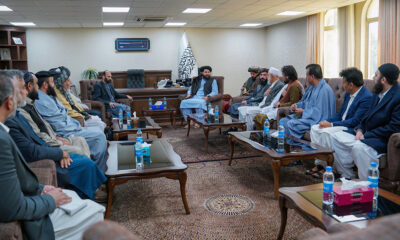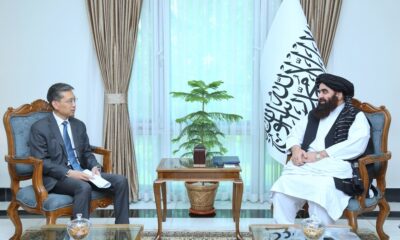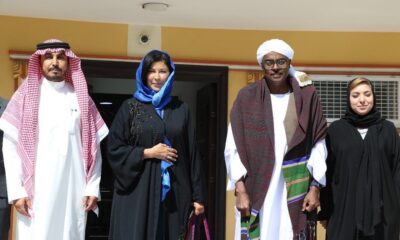Business
Turkish firm ‘moves forward’ with plans to invest in Afghan energy producing sector
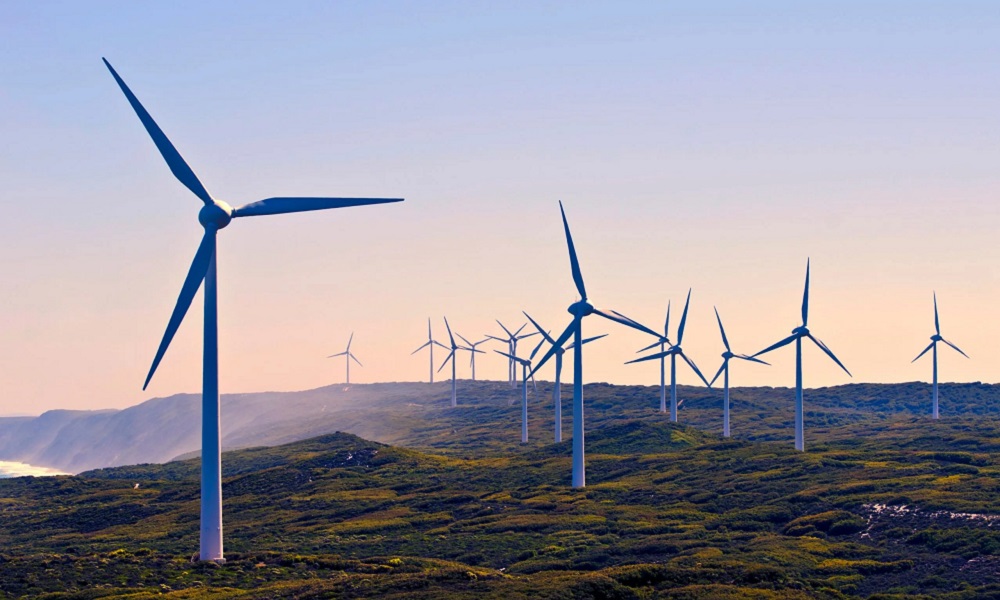
The Islamic Emirate’s minister of energy and water met on Sunday with the head of a Turkish construction company in Kabul to discuss investment in the energy production sector.
According to the ministry of energy and water, the company, 77 Insaat, expressed interest in investing in power-producing projects including a wind-generating endeavor that could produce 200 megawatts of electricity in Afghanistan.
The ministry said in a series of tweets that the IEA’s energy and water minister Abdul Latif Mansoor met with Suleyman Ciliv, the head of the company, “and discussed and exchanged ideas about the development of joint cooperation of investment in the energy production projects from different sources.”
At the meeting, Mansoor praised the initiative being taken by the company in Afghanistan and said the implementation of the second phase of the Kajaki Dam project by the company was a valuable achievement for the people of Afghanistan.
Mansoor emphasized the need for investment in energy projects and assured Ciliv that the leadership of the energy and water ministry is committed to cooperating with the company.
“Both parties agreed to sign a cooperation agreement to invest in a 200 megawatts wind power generation project as soon as possible, so that on the basis of this agreement, the practical works of this project will start in the future,” the ministry said.
Energy in Afghanistan is provided by hydropower followed by fossil fuel and solar power but currently more than 50% of electricity is imported from neighboring countries.
Many rural areas do not have access to power, while urban areas are often hampered by severe restrictions.
Afghanistan currently generates over 600 megawatts (MW) of electricity but its imports total over 670 MW more.
The Afghan National Development Strategy has identified alternative energy, such as wind and solar energy, as a high value power source to develop.
Last year the ministry of energy and water identified 16 electricity-generating projects that, once established, will increase power output and help make the country less reliant on its neighbors for this critical commodity.
The ministry said at the time that of these 16, there are 12 thermal and solar power projects that have been identified and proposals have been shared with domestic and foreign investors in the hope of attracting financial backing.
Economists have meanwhile said that if investors can be found to support this sector, and if more electricity is generated, industry will grow.
Power projects ‘prioritized’
In April last year, the IEA’s Economic Commission, chaired by Deputy Prime Minister Mullah Abdul Ghani Baradar, gave orders for various ministries to prioritize projects to generate electricity.
At the time, the commission said after “extensive discussions on all issues that the private sector is prepared to invest in”, it was decided that the generation of electricity should be a priority.
According to the statement, the commission instructed various ministries under the leadership of the ministry of energy and water, to also generate electricity from coal.
A shortage of power has plagued Afghanistan for decades despite it having ample hydropower, coal and fossil fuel resources – as well as potential for solar and wind energy projects.
Over the past few years however, one successful private partnership has emerged – between the Afghan government and Bayat Power, Afghanistan’s largest, Afghan-owned and operated power production company which has the region’s most technologically advanced gas fired electric power plant.
Launched in 2019, this commercial operation provides reliable and affordable electric power to hundreds of thousands of people in Afghanistan.
Located in Sherberghan, in the north of the country, the epicenter of the nation’s gas-rich region, Bayat Power has steadfastly aimed to provide essential power for Afghanistan’s economic growth.
Powered by a Siemens SGT-A45 ‘Fast Power’ turbine, the world’s most advanced mobile gas to energy power solution, phase one of Bayat Power-1’s operations generates up to 44 megawatts of power for Afghan homes and businesses.
To date, Bayat Power has delivered over 700 million kilowatts of domestic power to the Afghan grid. However, Bayat Power hopes to eventually roll out three phases in total that will generate more than 200 megawatts of electricity – enough to serve millions of Afghan residential and commercial clients.
Business
Afghanistan starts exporting via railway to Turkey

The Ministry of Interior says that Afghanistan has started exporting goods to Turkey via the Herat-Khaf railway line.
In a post on X, the ministry said: “Afghanistan’s exports to Turkey started in a calm atmosphere through the Herat-Khaf railway line.”
The ministry added that one train will run daily for a month and then two trains will run daily.
According to the ministry, the security of Khaf-Herat railway line is provided by the guards of the National Public Protection Agency.
Khaf-Herat railway project not only connects Iran and Afghanistan by rail, but also completes a 2,000-kilometer route along the east-west rail corridor from China, through Uzbekistan, to Afghanistan, to Iran, and on to Turkey and Europe.
As a landlocked country, this railway network will provide a safe route to connect with Europe via Iran’s railway network and Iran’s southern ports.
This railway line is strategic for trade between Iran and Afghanistan and will allow six million tons of goods to be sent between the two countries.
Business
Afghanistan, Kazakhstan to hold joint expo in Kabul
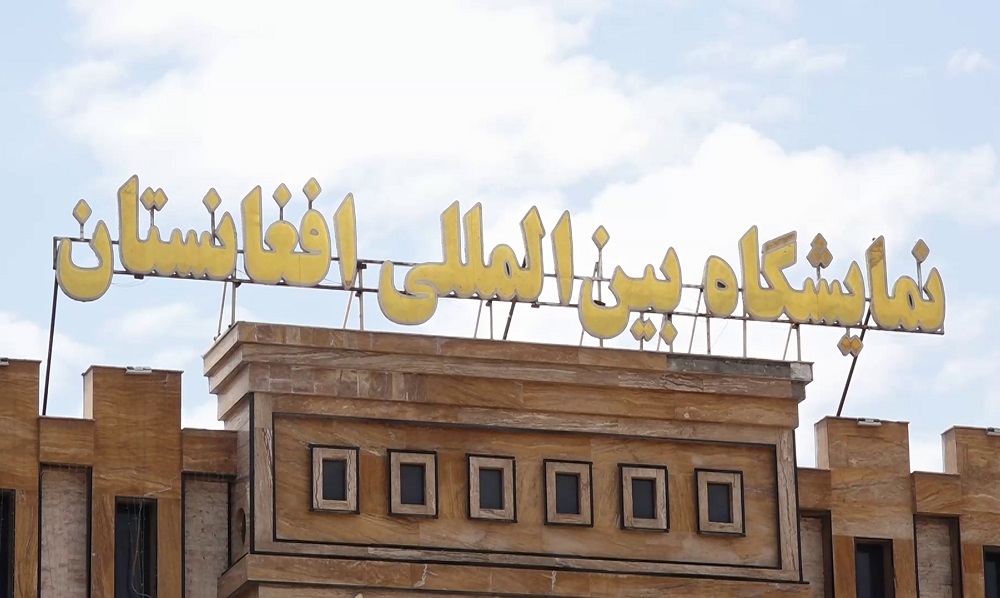
A joint expo between Afghanistan and Kazakhstan will be held in Kabul in the next four days, officials said on Sunday.
Officials of the Ministry of Industry and Commerce said that the two-day expo will be held for the purpose of expanding and strengthening trade relations between the two countries.
“This expo will be held as a follow-up of the Kazakh-Afghan international expo, which was held in the city of Astana, Kazakhstan, with the participation of a large delegation of the government and the private sector of the Islamic Emirate of Afghanistan,” Abdulsalam Javad Akhundzadeh, the spokesman of the Ministry of Industry and Commerce, said.
“At this expo, domestic products from different sectors of Afghanistan and the Republic of Kazakhstan will be put on display for two days.”
According to officials, 40 large Kazakh companies, and 40 large Afghan companies will exhibit their products.
Mohammad Saber Latifi, head of the Afghanistan International Expo Center, said that fruits, minerals and commercial services will be displayed at the expo.
During the expo, various memorandums of understanding for the trade of goods are also expected to be signed by companies.
Business
Afghanistan’s economic prospects are bleak: World Bank

The absence of GDP growth coupled with declining external financing avenues for off-budget expenditures paint a bleak picture of Afghanistan’s economic prospects, the World Bank said.
After a severe 20.7 percent GDP contraction in 2021, the Afghan economy contracted further by 6.2 percent in 2022, the bank said in a report.
“While Afghanistan’s agricultural and subsistence economy, including illicit opium production, provided some resilience in rural areas, higher prices, reduced demand, lower employment, and disruptions to services had severe impacts across the country,” it said.
The proportion of households that did not have enough income to meet basic food needs more than doubled from 16 percent to 36 percent in this period, according to the bank.
In the context of deep concerns about the policies of the Islamic Emirate of Afghanistan (IEA), including restrictions imposed on women and girls, the international community, including the World Bank, recalibrated its approach to supporting Afghanistan: first to providing humanitarian support and then to providing off-budget support for basic service delivery and livelihoods.
However, IEA moved to restore domestic revenues, which reached $2.2 billion or 15 percent of GDP in 2022. “Nevertheless, overall economic activity remained depressed, unemployment stayed high, and the banking sector was dysfunctional due to constraints on international transfers and concerns about liquidity and solvency.”
World Bank said that Afghanistan’s economic outlook remains uncertain, with the threat of stagnation looming large until at least 2025. “This economic stagnation will deepen poverty and unemployment, with job opportunities expected to decrease and food insecurity expected to increase.”
The bank noted that for a sustainable future, Afghanistan needs to focus on its comparative advantages, particularly in the agricultural and extractive sectors. Agriculture could be a key driver of growth and poverty reduction, with the potential to create jobs, it added.
-

 Business4 days ago
Business4 days agoCommerce ministry inks 10 MoUs to boost development of small and medium-sized businesses
-

 Sport4 days ago
Sport4 days agoRashid Khan threatens BBL pullout after Australia postpones Afghanistan T20I series
-

 Latest News4 days ago
Latest News4 days agoOver 6,000 acres of land cleared of poppies in Badakhshan
-

 Health5 days ago
Health5 days agoBalkh health officials report sharp increase in number of cancer patients
-

 Latest News4 days ago
Latest News4 days agoMSF ‘deeply concerned’ over new phase of deportations of Afghans from Pakistan
-

 Sport3 days ago
Sport3 days agoAfghanistan Champions League kicks off with grand opening ceremony
-

 Latest News2 days ago
Latest News2 days agoPakistan’s frontiers minister stresses ‘dignified’ return of Afghan refugees
-

 Regional3 days ago
Regional3 days agoIran’s foreign minister downplays drone attack, says Tehran investigating


